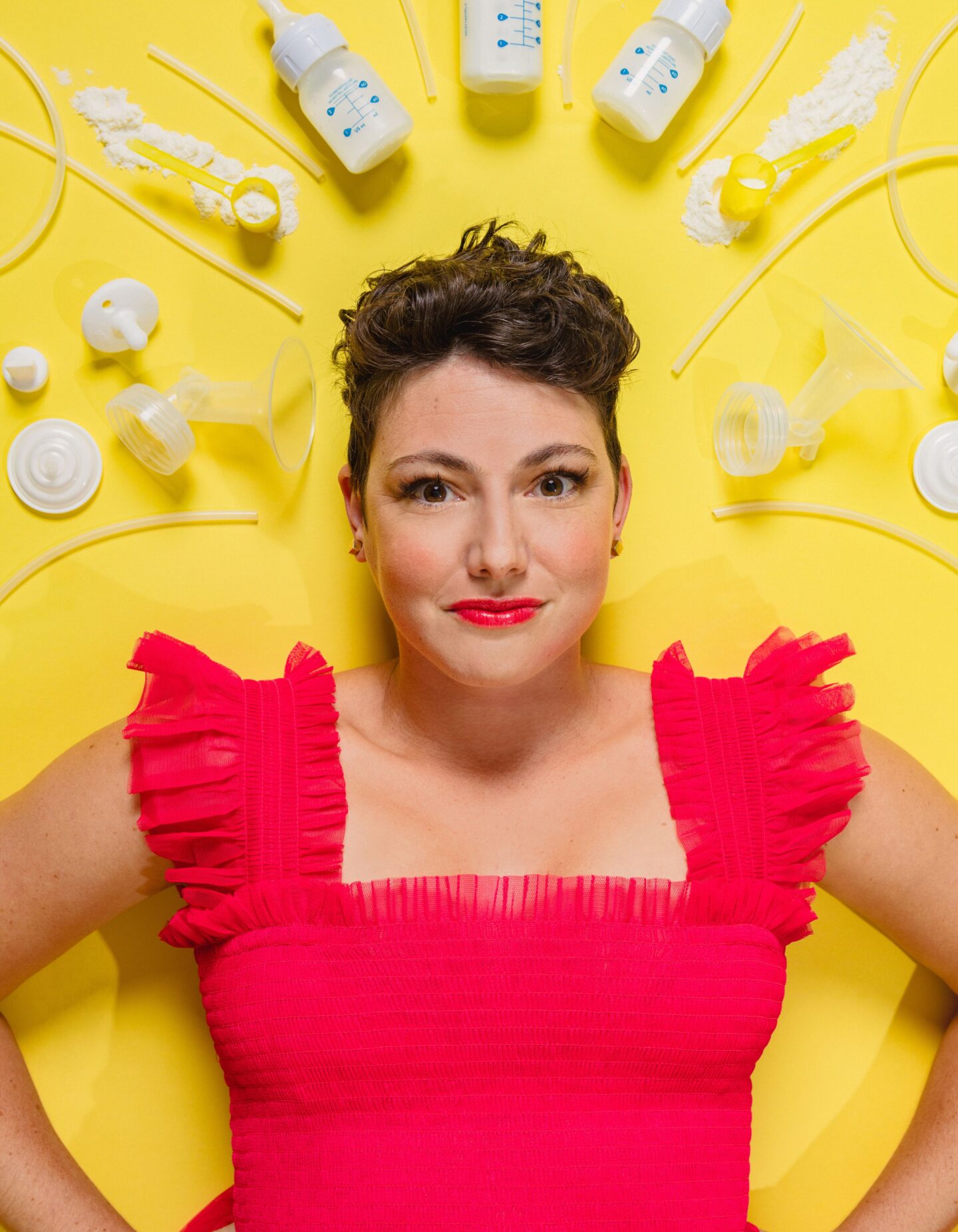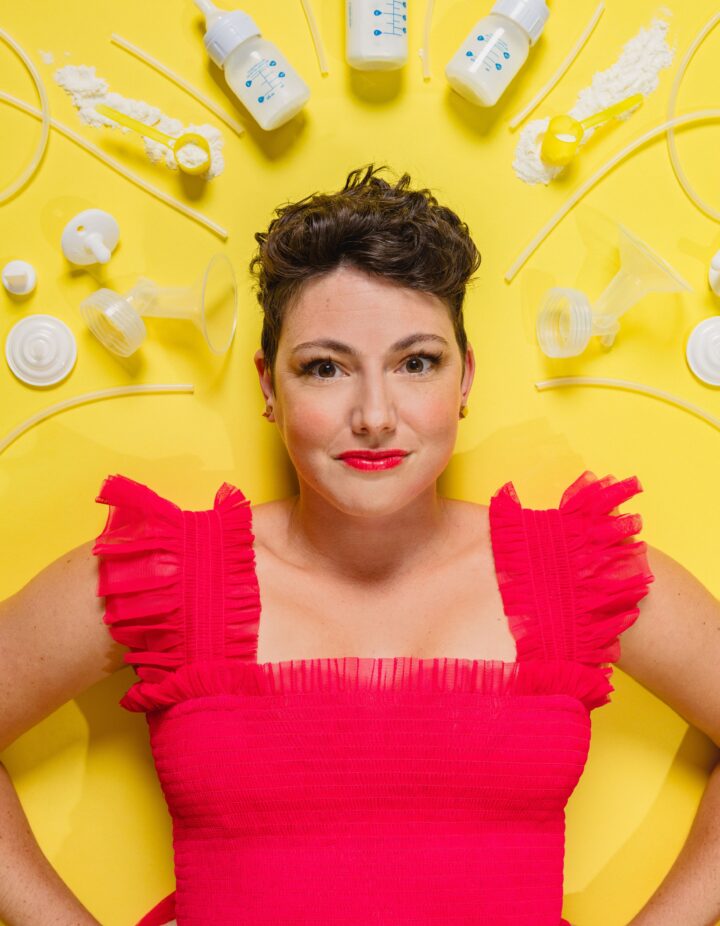We sat down with Victoria Facelli, an Internationally Board Certified Lactation consultant and author of Feed the Baby: An Inclusive Guide to Nursing, Bottle-Feeding and Everything in Between to prepare you as you start your feeding journey. A few years ago, Victoria found herself in the same position as many new parents: her babe couldn’t breastfeed. And while she practices as a formula-positive consultant, the mental and physical toll of the situation made her take a long hard look at the culture of feeding. Victoria is an autistic queer Latina mom who still doesn’t see families that look like hers in parenting books and wanted to make sure – through illustration, video, and case studies – that in her book, the full array of perfectly imperfect families was represented.
Have you noticed that when you are in the throes of having a baby, all of the prep is aimed at getting ready for labor, but not so much what comes after? Prenatal yoga, childbirth classes, birthplace tours, packing the perfect hospital bag…but how do you prepare for something as unpredictable and essential as feeding a baby?
The long and short of it? Prepare for what is in your control and accept what isn’t. Your baby will come with a unique body, temperament, and digestive system. We can’t plan for that. But we can plan out support, information, and some of the anatomy and physiology on your end.
If you are planning to nurse or pump:
Take a little medical history of yourself and your chest ,
Take a look at your chest. Has it changed significantly since you became pregnant? If not, talk about it with your provider. Do you have flat or inverted nipples? Are your breasts set wide away from each other with lots of space in the middle? Have you had surgery on your chest or armpits? If you’ve already had babies, take stock of what happened last time, each baby is different but that will give you some clues about if you tend to need a nipple shield, have high supply, low supply, etc. If your last baby had a tongue tie, this one probably will too. No clue what I’m talking about? Check out my book.
Talk to your workplace.
It’s much better to plan your return to work before you start parental leave. Even in 2023, many workplaces don’t know what to provide, like consistent breaks and a room with a lockable door and privacy. No, the glass conference room won’t work.
Find a lactation professional.
Almost every town has a parent Facebook group full of controversy and rash photos. They are also the absolute best place to get referrals. Ask there for a great lactation consultant or counselor. You can do a prenatal visit or wait until you need them, but having a well-tested name picked out will make asking for help less stressful.
If you are planning to formula feed:
Learn about formulas.
The FDA standardizes formula very carefully so they are all safe and healthy for babies. Your birthing place will have formula if you need it, but if you don’t want to use what they have and don’t want to worry about switching later, you can bring your own. I recommend a formula where the first ingredient is lactose, and if it’s an option, get the generic brand. Want to learn everything you need to know about formula feeding? It’s on page 77 of the book.
No matter how you feed your baby:
Write these affirmations on sticky notes where you will see them:
You are enough. It’s okay to change the plan.
Victoria Facelli is an Internationally Board Certified Lactation consultant and author of Feed the Baby: An Inclusive Guide to Nursing, Bottle-Feeding and Everything in Between. A few years ago she found herself in the same position of many new parents: her kid wouldn’t breastfeed. And while she practices as a formula positive consultant, the mental and physical toll of the situation made her take a long hard look at the culture of feeding. Victoria is an autistic queer Latina mom and still doesn’t see families that look like hers in parenting books, and wanted to make sure – through illustration, video, and case studies – that the full array of perfectly imperfect families was represented.




